Curtain falls on Dhaka Lit Fest
A romantic novel set against the backdrop of the Sri Lankan civil war bagged the prestigious DSC Prize for South Asian Literature, as the seventh Dhaka Literary Festival ended yesterday with hopes of engaging even more literary minds from across the globe next year.
“The Story of a Brief Marriage”, authored by Anuk Arudpragasam and published by Granta Books, UK, was among 70 submissions from which a distinguished panel of jury short-listed five books for the award.
Announcing the winner, Ritu Menon, an Indian feminist writer who headed the jury, said the novel's intense focus, impressive details and acute sensitivity in writing while describing human relationship during the hardship of war had been considered for the prize.
“It [the book] is a testament of the redemptive power of love,” she added.
According to the DSC Prize's official website, this year's international jury panel included Ritu Menon, Jury Chair and eminent feminist writer; Valentine Cunningham, Professor Emeritus of English language and Literature at Oxford University, UK; Steven Bernstein, celebrated screenwriter, director, author, cinematographer and lecturer based out of Los Angeles, USA; Yasmin Alibhai-Brown, respected journalist, pundit, radio and television broadcaster, based in London and Senath Walter Perera, Senior Professor in English, University of Peradeniya, Sri Lanka who has authored several publications on the diasporic and postcolonial literature of the region.
The five shortlisted authors and novels in contention for the DSC Prize this year were Anjali Joseph: The Living, Anuk Arudpragasam: The Story of a Brief Marriage, Aravind Adiga: Selection Day, Karan Mahajan: The Association of Small Bombs and Stephen Alter: In the Jungles of the Night.
Sharing his thoughts, Anuk said he is more comfortable thinking that writers or books cannot be compared with each other because authors have their own thoughts and they move in their own directions.
“Books shouldn't be compared; literature happens in silence,” he said after winning the coveted US $25,000 DSC Prize.
DLF co-director Ahsan Akbar made a brief speech welcoming the DSC Prize to being a part of the festival this year.
The DSC Prize for South Asian Literature is an established international literary prize that awards the best work in South Asian fiction writing each year, according to its official website.
Congratulating the winner, Surina Narula, co-founder of the DSC Prize, said this year the shortlisted novels were all equally exciting with diverse subjects. Her husband and co-founder of the prize, HS Narula, also spoke at the ceremony.
Meanwhile, the third day of the DLF saw as many as 28 different sessions which drew book lovers from different corners of the city.
Attending the closing ceremony as chief guest, Finance Minister Abul Maal Abdul Muhith said the DLF has turned out to be a great opportunity for international exposure with writers coming from various parts of the world each year.
He hoped that the festival will keep providing opportunities in future to do more and engage more literary minds including those from the South Asian region.
On yesterday's event, a session took place in the morning on “Woman, Art and Politics” which shed light on the need for teaching children about gender equality while following a sophisticated method so that they take an interest in the sensitive issue.
At another session on the topic “Dhaka University Looking Back”, a distinguished panel of discussants, including literature critics and professors, shed light on a book, “Memoirs of Dacca University”, authored by AG Stock, to describe social obstacles which are holding women back in contemporary Bangladeshi society.
The curtain rose on the three-day DLF, previously known as the Hay Festival Dhaka, on November 16, in the historic grounds of the Bangla Academy, with Syrian poet Ali Ahmad Said Esber, known as Adunis, formally inaugurating it.
Many notable names like eminent Padma Shri-winning poet Nabaneeta Dev Sen and British actress Tilda Swinton took part in the festival. A host of Bangladeshi authors and academicians like writer Imdadul Haq Milon, poet Helal Hafiz and academician Salimullah Khan, also were part of the fest.
Alongside literary discussions, there were also cultural performances, writing workshops, interactive panel discussions, book launches and creative sessions for children.
The festival hosted over 200 talents this year from 24 different countries in over 90 sessions, all of which were open to all.
The DLF is being produced by Jatrik, with Bangla Academy as the co-host and supported by the Ministry of Cultural Affairs.

 For all latest news, follow The Daily Star's Google News channel.
For all latest news, follow The Daily Star's Google News channel. 

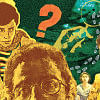
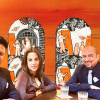
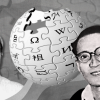
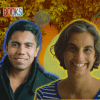
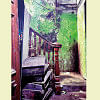


Comments